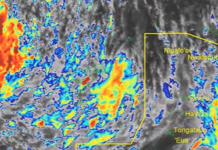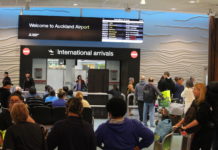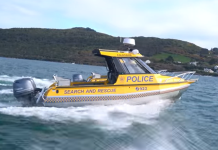By One News. This story is republished with permission under the Kaniva Tonga News partnerships with TVNZ
Transnational crime syndicates are capitalising on the Covid-19 crisis to smuggle drugs into the Pacific.
The warning comes from a global security expert as New Zealand’s role in a huge offshore cocaine bust is revealed.
On the high seas off Australia, police swooped in on fishing trawler the Coralynne, to arrest three men and seize nearly two tonnes of cocaine.
The Coralynne had earlier interacted with an international vessel in the Pacific. It’s believed that’s where the drugs were transferred.
“The Australian Border Force, through Maritime Border Command, received some intelligence from New Zealand authorities about a foreign fishing vessel in some unusual circumstances,” NSW Border Force Commander Danielle Yannopoulos says.
It was New Zealand Customs behind the tip-off.
It runs a joint operation centre out of its Auckland headquarters, tracking traffic in the Pacific.
NZ Customs confirmed it handed over intelligence but couldn’t comment further as investigations are ongoing.
1 NEWS understands it had been tracking the mother vessel, which reportedly originated from China.
Security analysts believe drug syndicates are exploiting the Covid-19 crisis and resulting border closures.
“These syndicates are finding new ways to get the drugs through to the markets of Australia and New Zealand,” Strategika Group’s Jose Sousa-Santos says.
Just last month, a small plane from Australia flew under the radar into Papua New Guinea to allegedly pick up more than 600kg of cocaine.
It crashed and its wreckage was found just outside the capital port Moresby.
The Australian pilot later handed himself in, which led to the arrest of another five Australians and four locals.
“Having the Pacific region under economic duress has definitely given them a new landscape to exploit,” Mr Sousa-Santos says.
One of those regions is Tonga.
In an ongoing investigation, 1 NEWS has revealed the extent of the methamphetamine trade there.
Despite closing its border in March, drugs continue to flow in and police continue to make scores of arrests.
“I think what we need to see is greater support from Australia and New Zealand and other traditional partners in regards to maritime border patrols, especially at the moment,” Mr Sousa-Santos says.







